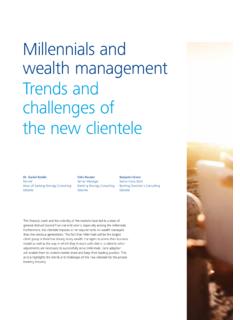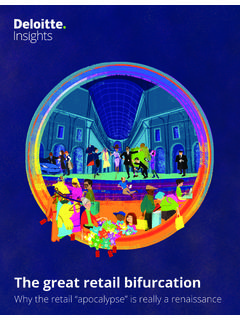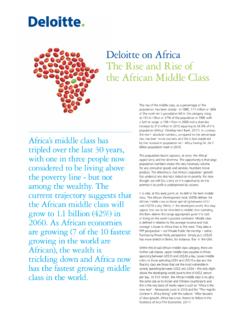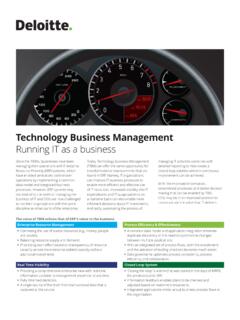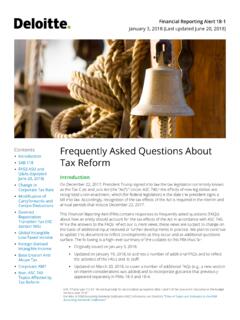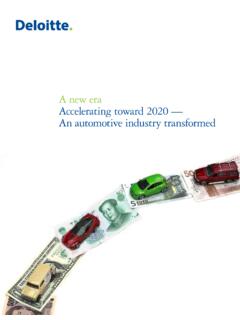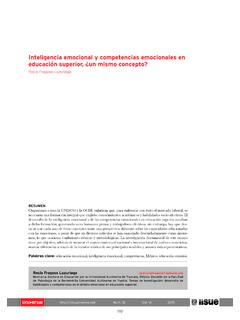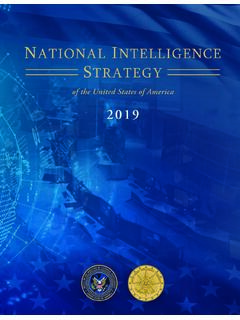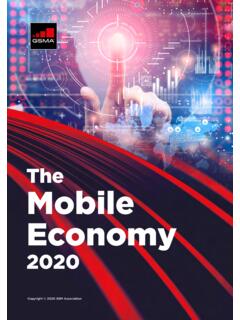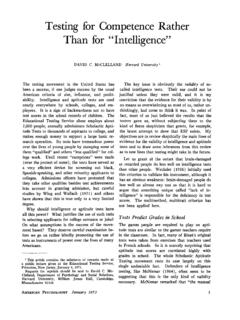Transcription of The Fourth Industrial Revolution - Deloitte
1 The Fourth Industrial RevolutionAt the intersection of readiness and responsibilityIntroduction: Great awakening 2 Executive summary 3 Strategy: When strategy leads, success follows 5 Societal impact: Recognition of business social responsibility 8 Talent: A new investment priority for business 11 Technology: Leaders continue to retreat from disruption 15 Summary: Time to accelerate 18 Endnotes 20 Contents2 Introduction: Great awakening SOME HAVE LONG argued that corporations should strive for profits above all else, that making money for shareholders is a company s sole reason for But as the transformation to Industry continues, more business leaders are starting to see a bigger picture and a larger on the last generation s corporate social responsibility movement, a new form of capitalism seems to be emerging, one that considers a broader group of stakeholders and measures societal impact alongside financial performance.
2 In August 2019, the CEOs of nearly 200 multinational corporations signed a statement issued by the Business Roundtable publicly pledging to lead their companies for the benefit of customers, employees, suppliers, and communities in addition to That sentiment was echoed in The Universal Purpose of a Company in the Fourth Industrial Revolution , a statement offered by World Economic Forum in December working to keep up with the pace of technological change, business leaders are also beginning to appreciate the need to nurture a culture of lifelong learning, equipping their workforces with the skills necessary to succeed in the future.
3 And thanks in part to pressure from customers and employees, executives are expressing deep concerns about climate change and resource scarcity, topics that were on few C-suite agendas just a couple of years Deloitte Global s third annual survey of more than 2,000 C-suite executives across 19 countries, we examined the intersection of readiness and responsibility to see how leaders are balancing this transition to Industry capitalizing on advanced technologies to help propel their businesses forward while acting in more socially responsible ways, particularly in the area of environmental in 10 C-suite executives believe that long-term business success requires the integration of Industry technologies into their operations.
4 But even more nine in 10 expect climate change to have a negative impact on their organizations. That s a reminder that the Fourth Industrial Revolution isn t the only huge challenge weighing on the minds of the world s business leaders and those other looming concerns could radically alter how businesses adapt their strategies and activities going forward. Companies are beginning to understand the massive impact of Industry and the role of technology in fundamentally transforming business models and processes. The challenge is figuring out the intermediate steps they need to take to harness and realize the benefits of the Industry future.
5 It s not only about creating a technology roadmap, but also a business and investment roadmap for the long term. Ram Jambunathan, SVP of corporate strategy and managing director, The Fourth Industrial Revolution3 Executive summary THE Fourth Industrial Revolution , also known as Industry , refers to the marriage of physical assets and advanced digital technologies the internet of things (IoT), artificial intelligence (AI), robots, drones, autonomous vehicles, 3D printing, cloud computing, nanotechnology, and more that communicate, analyze, and act upon information, enabling organizations, consumers, and society to be more flexible and responsive and make more intelligent, data-driven associate these advanced technologies mainly with efficiency, cost cutting, and profit maximizing.
6 But the companies that are succeeding in this era are those that understand technology can help in all areas of their businesses, including overall business strategy, workforce and talent strategies, societal impact, and, of course, technological operations. We found that some companies, particularly those with comprehensive Industry strategies, are performing well while others lag behind. This year s report highlights the following major trends and insights. When strategy leads, success follows Short-termism and the struggle to develop effective, holistic strategies that take advantage of Industry technologies identified in last year s report4 continue, to the disadvantage of many organizations.
7 This year, two-thirds of CXOs said their companies either have no formal strategies or are taking ad-hoc approaches to Industry Conversely, only 10 percent of leaders said they have longer-range strategies to leverage new technologies that reach across their organizations. That s unfortunate, because the survey data suggests businesses with comprehensive Industry strategies are far more successful across the board. They re innovating and growing faster, successfully integrating Industry technologies, and doing a better job of attracting and training the people they ll need in the future.
8 Their executives are also more confident about leading in the Industry of business social responsibility There s ample evidence that most businesses are beginning to try to find balance between profit and purpose, thanks largely to increased pressure from customers, employees, and other stakeholders. In fact, nearly four in 10 surveyed CXOs said they focus on societal issues because it s a priority of external 70 percent of those with comprehensive Industry strategies have made a great deal of progress against their goals, versus 10 percent who do not have strategies.
9 It s telling that nearly all business leaders we surveyed fear that the effects of climate change could negatively affect their organizations; half cited tackling climate change as their generation s top priority. Business leaders are accepting a responsibility to act, and many are rolling out programs addressing resource scarcity and environmental sustainability. To that end, more than 90 percent of executives said their companies have sustainability initiatives in place or on the drawing the intersection of readiness and responsibility 4 Commitment to training and development Organizations continue to struggle to ensure their workforces possess the skills needed to succeed in an Industry environment.
10 Only a fifth of executives completely agree that their organizations are currently ready, and just 10 percent said they are making a great deal of progress identifying, attracting, and retaining the right , though, the responsibility for developing those skills seems to have shifted. A growing number of leaders now accept responsibility for developing their workforces, with fewer executives than last year putting the onus on the individual. More than 80 percent of CXOs said they either have created or are creating a corporate culture of lifelong learning, with another 17 percent planning to do so, and training has become a top investment priority.
